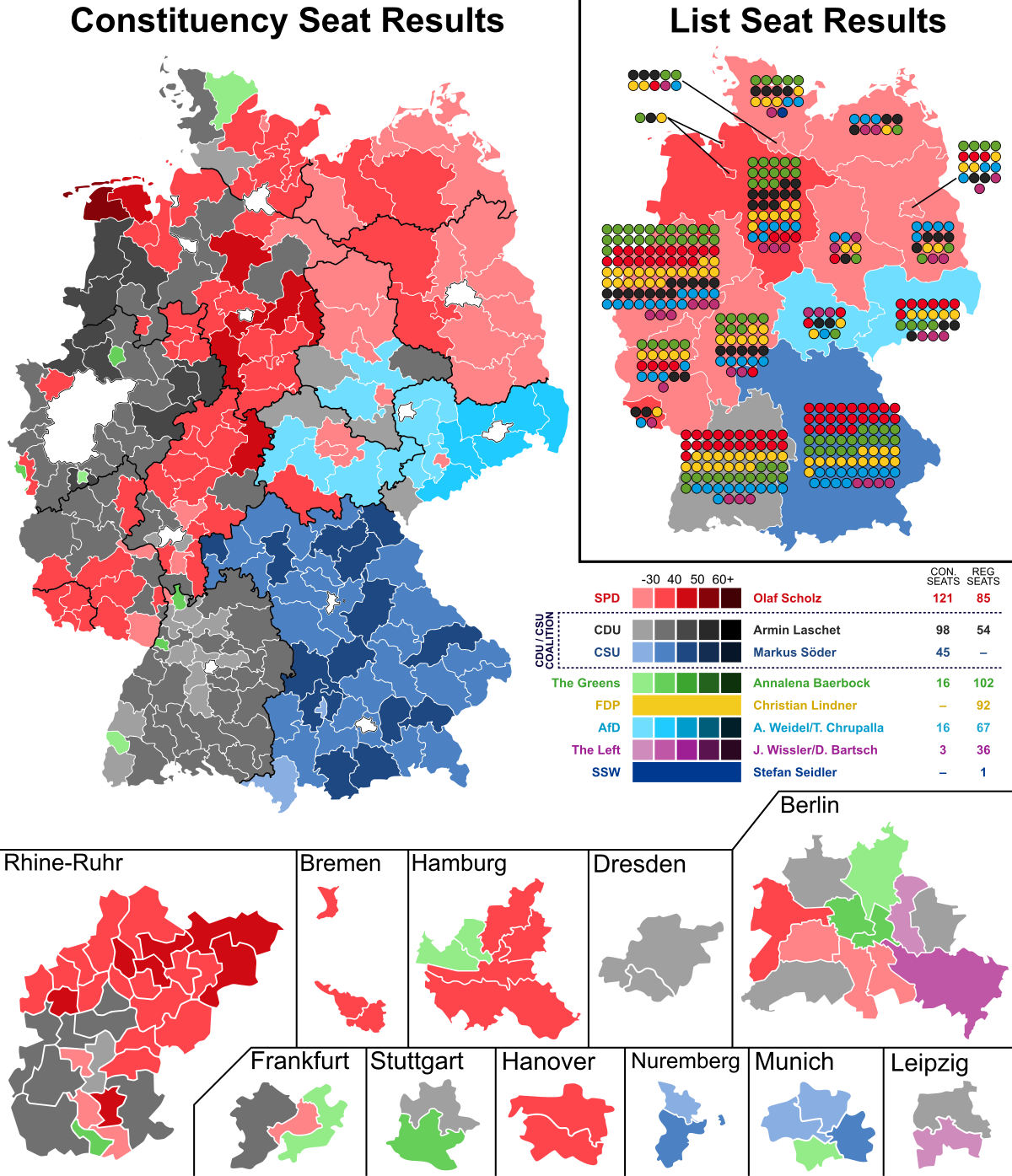From what I've seen of German they absolutely do have a tyranny of urban dwellers. The reality is that cities are liberals and countrysides are conservative. Cities are more populated than countrysides. In a direct democracy the city dwellers always win and thus impose their tyranny upon the minority. PR doesn't change this because the urbanites have a majority.
Okay, so you see the countryside of conservative and the urban areas as liberal, and the conservatives were in power from 2005 to 2021 and this tells you there's an tyranny of the urban liberals?
Well, you're wrong.
This statistic shows the degree of urbanization in Germany from 2013 to 2023.

www.statista.com
77% of Germany is urban. So, I guess it doesn't really matter what, the urban voters are the majority.

en.wikipedia.org

en.wikipedia.org
But look at the Laender votes.
North Rhine-Westphalia is the largest state, it has 21% of the population, it also has the largest population density of any Land that isn't a city Land. It's very urban. And yet, 29.1% voted SPD, the liberal party, 26% the CDU, the conservative party, 16% the Greens, 11% the center right party, 7% the AfD, the wacky Tea Party style party.
Mecklenburg-Vorpommern has the lowest population density of all the Laender, 29.1% voted SPD (the same as Nord-Rhine-Westphalia), 17.4% voted CDU, (much lower) 7.8% voted the Greens, *much lower) it was the AfD and die Linke (the left) who did better.
So, 48% voted left parties in Mecklenburg-Vorpommern, and 48.9% voted left wing parties in Nord Rhine-Westphalia.
The difference between the most urban and the least urban is 0.9% of the vote.
It's not an issue in Germany, because their electoral system doesn't make it an issue.



